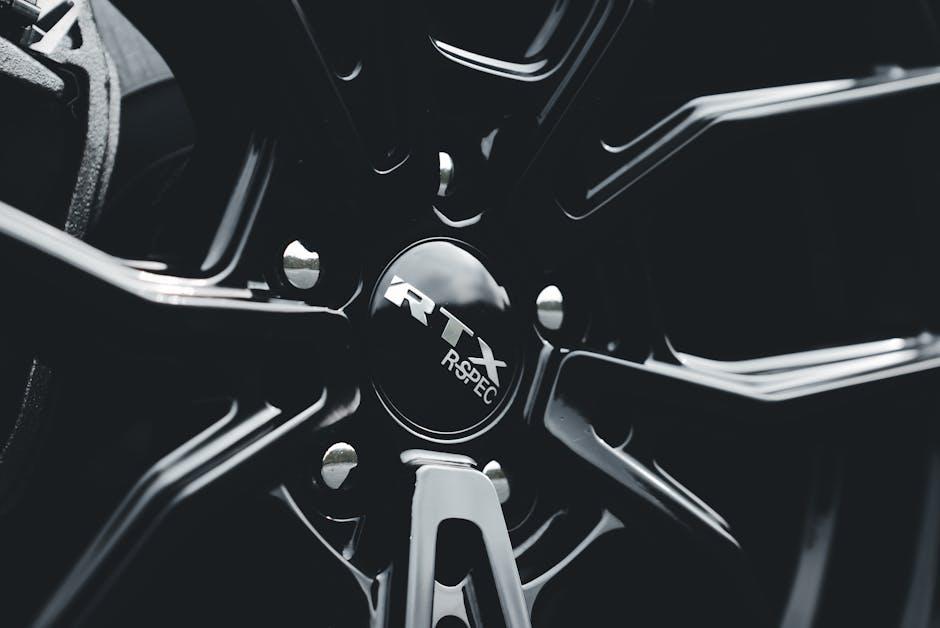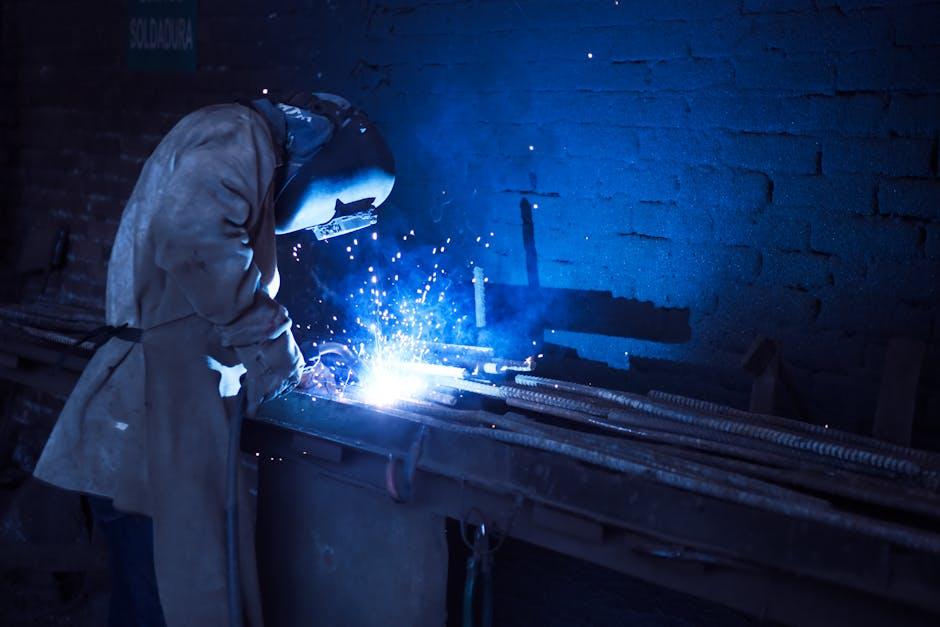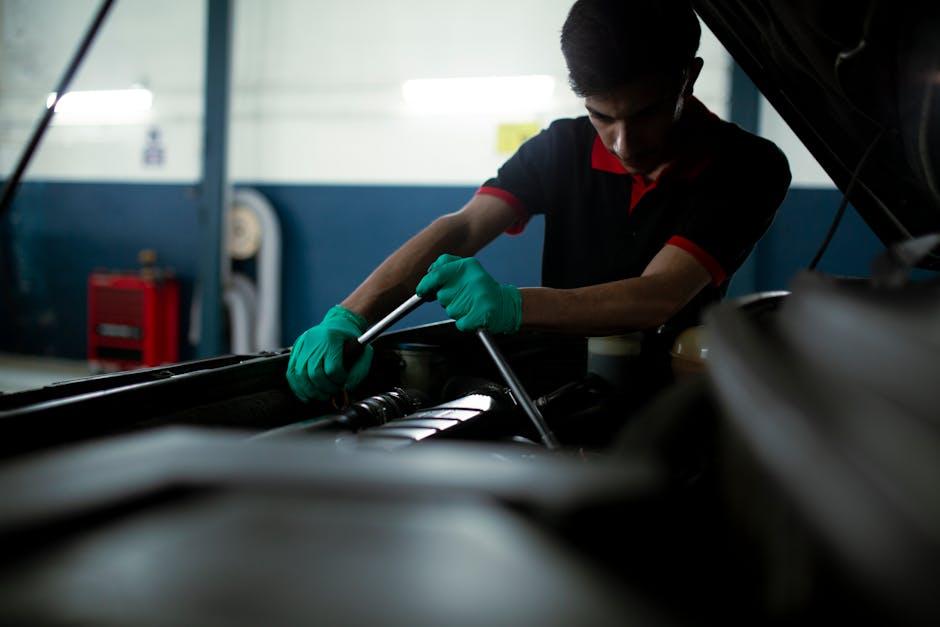Beneath the sleek hood of every vehicle lies a complex symphony of mechanical parts working in concert to keep your engine humming smoothly. Yet, sometimes this harmony falters, and the engine temperature begins to climb dangerously high. Engine overheating—a frustrating and potentially costly problem—can strike without warning, leaving drivers stranded and concerned. But what exactly causes an engine to overheat? Exploring the underlying reasons reveals a blend of mechanical issues, environmental factors, and maintenance challenges that disrupt the delicate balance of heat regulation. This article dives into the root causes of engine overheating, helping you understand how to keep your engine cool and your journey uninterrupted.
Table of Contents
- Understanding the Role of the Cooling System in Engine Temperature
- Common Mechanical Failures That Lead to Overheating
- How Poor Maintenance Accelerates Engine Heat Issues
- The Impact of Driving Habits on Engine Temperature
- Identifying Warning Signs Before Overheating Occurs
- Practical Tips to Prevent and Manage Engine Overheating
- Q&A
- To Conclude

Understanding the Role of the Cooling System in Engine Temperature
The cooling system is the unsung hero that works tirelessly behind the scenes to maintain a safe operating temperature for your engine. It circulates coolant—a mixture of water and antifreeze—through the engine block, where it absorbs the intense heat generated during combustion. This heated coolant then flows to the radiator, where it releases heat into the atmosphere before recirculating back into the engine. Without this relentless heat exchange, the engine’s metal components would expand, warp, and eventually seize, causing catastrophic damage. Key components such as the thermostat, water pump, radiator, and cooling fans collaborate seamlessly to ensure the engine temperature stays within an optimal range.
Common elements in the cooling system include:
- Water Pump: Pushes coolant through the engine and radiator.
- Thermostat: Regulates coolant flow based on temperature.
- Radiator: Dissipates heat from hot coolant into the air.
- Cooling Fans: Increase airflow over the radiator during low-speed conditions.
| Component | Function | Potential Issue |
|---|---|---|
| Thermostat | Controls coolant flow to maintain ideal temperature | Stuck closed, causing overheating |
| Water Pump | Circulates coolant through the system | Leaking or failure reduces coolant flow |
| Radiator | Dissipates heat from hot coolant | Clogged or leaking reduces cooling efficiency |

Common Mechanical Failures That Lead to Overheating
Overheating often traces back to critical mechanical issues disrupting the engine’s delicate thermal balance. One primary culprit is a failing water pump, which hinders coolant circulation, causing heat to build up rapidly. Similarly, a broken thermostat stuck in a closed position traps coolant, preventing it from flowing through the radiator to dissipate heat. Additionally, worn-out hoses can leak or collapse under pressure, leading to insufficient coolant flow. Each of these failures silently escalates engine temperature without immediate warning, demanding attention before severe damage occurs.
Other common mechanical defects include a clogged radiator that limits airflow and heat exchange, or a malfunctioning cooling fan that fails to draw cool air through the radiator at low speeds. Beyond these, internal issues like blown head gaskets can introduce hot gases into the cooling system, compounding temperature spikes. Below is a snapshot illustrating how these failures impact the engine cooling process:
| Problem | Effect | Trigger Point |
|---|---|---|
| Water Pump Failure | Coolant stagnates | Engine reaches operating temp |
| Thermostat Stuck Closed | Coolant circulation stops | Engine warms up |
| Clogged Radiator | Heat dissipation reduced | Prolonged engine use |
| Faulty Cooling Fan | Airflow diminishes | Idle or slow speed |

How Poor Maintenance Accelerates Engine Heat Issues
Neglecting routine checks and repairs can quickly turn a manageable cooling problem into a costly engine heat nightmare. When oil is not changed regularly, for instance, it loses its ability to reduce friction between engine components, resulting in increased heat generation. Similarly, skipping coolant flushes or ignoring leaks reduces the effectiveness of the cooling system. Small issues like clogged radiator fins or malfunctioning fans, often overlooked during poor maintenance, restrict airflow and heat dissipation, causing engine temperatures to soar unexpectedly.
- Old or dirty engine oil
- Coolant contamination or low levels
- Blocked radiators and hoses
- Faulty thermostats and fans
- Unaddressed sensor or pump failures
| Maintenance Aspect | Potential Heat Issue |
|---|---|
| Oil Change Schedule | Increased friction, higher engine temperature |
| Coolant Quality | Reduced heat transfer, overheating risk |
| Radiator Condition | Poor airflow, heat buildup |
Failure to perform timely maintenance does not only compromise individual components; it disrupts the entire cooling ecosystem of the engine. For example, a failing water pump slows coolant circulation, forcing the thermostat to overwork or stall, which ultimately causes uneven heat distribution. Additionally, outdated sensors can give false readings, misleading drivers into delaying critical repairs. Recognizing maintenance as a proactive step is key to preventing thermal stress and ensuring the engine runs smoothly under all conditions.

The Impact of Driving Habits on Engine Temperature
Engine temperature is highly sensitive to the way a vehicle is driven, often reflecting the driver’s habits behind the wheel. Aggressive driving behaviors such as rapid acceleration, frequent hard braking, and maintaining high speeds for extended periods can cause the engine to work harder than usual. This extra exertion leads to excessive heat generation that the cooling system may struggle to dissipate efficiently. Additionally, prolonged idling or slow driving in heavy traffic can reduce air flow through the radiator, hindering cooling performance and causing the engine temperature to creep upward.
Certain common habits can exacerbate overheating risks:
- Ignoring warm-up periods: Jumping into fast speeds immediately after starting the engine can spike temperatures.
- Overloading the vehicle: Carrying loads beyond the recommended limits puts extra strain on the engine.
- Neglecting gear shifts: Staying in low gears at high speeds generates more heat.
| Habit | Effect on Engine Temperature |
|---|---|
| Aggressive Acceleration | Sharp temperature spikes |
| Extended Idling | Limited cooling airflow |
| Ignoring Maintenance | Cooling system inefficiency |

Identifying Warning Signs Before Overheating Occurs
Before engine temperatures reach a critical level, your vehicle often signals distress through several early indicators that shouldn’t be ignored. Recognizing these signs can save you from costly repairs and unexpected breakdowns. Keep an eye out for unusual temperature gauge readings fluctuating higher than normal, a persistent smell of coolant or burning, and the
Other subtle hints can be missed but are equally important. Check for:
- Coolant leaks on the ground;
- Ticking or knocking noises coming from the engine;
- Warning lights, especially the temperature or check engine light;
- Poor heater output inside the cabin during cold weather, indicating possible coolant issues.
| Warning Sign | What It Indicates |
|---|---|
| Temperature Gauge Rising | Cooling system inefficiency or low coolant |
| Coolant Smell | Possible leaks or gasket failure |
| Steam Around Hood | Overheating occurring or coolant boiling |
| Warning Light Activation | Engine control system detects abnormal heat |

Practical Tips to Prevent and Manage Engine Overheating
Keeping your engine cool starts with regular maintenance and a keen eye on the cooling system components. Ensure your coolant levels are consistently topped up and replace the coolant as recommended by your vehicle’s manufacturer to prevent corrosion and overheating. Regularly inspect hoses and belts for cracks or leaks—these small weaknesses can spiral into major overheating problems. Don’t forget the radiator: a quick flush every couple of years clears debris and buildup that block airflow and heat dispersion.
While driving, be mindful of signs of overheating such as a rising temperature gauge or steam from under the hood. If you notice these symptoms, safely pull over and shut off the engine to prevent damage. Utilize a few simple preventative steps:
- Check the radiator fan: Ensure it activates when the engine warms up to maintain airflow.
- Inspect for leaks: Look under your vehicle for puddles of coolant or oil.
- Monitor driving habits: Avoid excessive idling in hot weather and limit high-revving in tough conditions.
| Common Issue | Recommended Action |
|---|---|
| Low Coolant Level | Top up and fix leaks immediately |
| Faulty Thermostat | Replace to ensure proper engine temperature regulation |
| Clogged Radiator | Flush and clean to improve coolant flow |
Q&A
Q&A: Understanding What Causes Engine Overheating
Q1: What exactly happens when an engine overheats?
When an engine overheats, it means the internal temperature of the engine has risen beyond its normal operating range. This excessive heat can cause engine components to warp, seize, or even fail, leading to serious mechanical damage.
Q2: Why is controlling engine temperature so important?
Engines rely on precise temperature control to run efficiently. Too cold, and the engine won’t operate smoothly; too hot, and critical parts can deteriorate rapidly. Proper temperature regulation ensures longevity, performance, and safety.
Q3: What are the most common causes of engine overheating?
Several culprits can cause overheating, including:
- Coolant issues: Low coolant levels, leaks, or degraded coolant can reduce the engine’s ability to dissipate heat.
- Thermostat failure: A stuck thermostat may prevent coolant flow, causing heat to build up.
- Radiator problems: Blockages, corrosion, or fan failures can impede the radiator’s cooling function.
- Water pump malfunction: Since the pump circulates coolant, its failure can lead to stagnant, overheated fluid.
- Broken hoses: Leaky or damaged hoses can lead to coolant loss and reduced cooling efficiency.
- Heavy engine load or environmental factors: High speeds, towing, or hot weather can push the engine beyond normal temperature limits.
Q4: Can engine overheating be prevented?
Yes, regular maintenance is key. Checking coolant levels, inspecting hoses and belts, ensuring the radiator is clean, and monitoring the thermostat and water pump’s function can reduce the risk. Also, staying alert to warning signs like temperature gauge spikes or steam from the hood helps catch problems early.
Q5: What should I do if my engine starts to overheat while driving?
If your engine overheats, safely pull over and turn off the engine to let it cool. Avoid opening the radiator cap when hot, as pressure and steam can cause injury. Once cooled, check coolant levels if possible, and seek professional repairs promptly to avoid further damage.
Q6: Are there any long-term effects of driving with an overheating engine?
Yes, consistently overheating an engine can result in warped cylinder heads, blown head gaskets, cracked engine blocks, and permanent internal damage. These repairs can be costly and sometimes irreversible, underscoring the importance of addressing overheating issues quickly.
Q7: How does a malfunctioning cooling fan affect engine temperature?
The cooling fan helps draw air through the radiator, especially when the vehicle isn’t moving fast enough to create airflow naturally. If the fan stops working, the radiator can’t cool the coolant effectively, causing the engine temperature to soar, particularly in slow traffic or hot conditions.
Q8: Can using the wrong type of coolant cause overheating?
Using the incorrect coolant can reduce the efficiency of heat transfer or cause corrosion inside the cooling system. Always using the manufacturer’s recommended coolant type and mixing it correctly with water helps maintain optimal engine temperature control.
Q9: Is overheating more common in older cars?
Older vehicles may be more prone due to worn-out parts, corrosion, and degraded coolant. However, any car, regardless of age, can overheat if the cooling system is not properly maintained or if a component fails unexpectedly.
Q10: What role does oil play in preventing engine overheating?
Engine oil lubricates moving parts and helps dissipate heat. Low or degraded oil can increase friction and heat buildup, contributing to overheating. Regular oil changes and monitoring oil levels support overall engine temperature management.
To Conclude
In the complex dance of metal and fuel that powers our engines, overheating stands as a warning sign—a signal that something within the system is out of balance. Understanding the root causes behind this fiery plight not only helps prevent costly repairs but also keeps the heart of your vehicle beating smoothly. Whether it’s a failing thermostat, a leaking radiator, or simply low coolant levels, recognizing these triggers empowers you to act swiftly and wisely. After all, keeping your engine cool is more than just maintenance—it’s preserving the lifeline that drives your journey forward.

